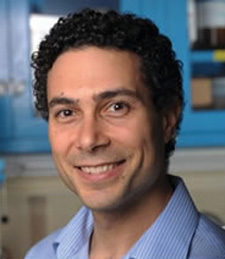Research directed by Basar Bilgicer, assistant professor of chemical and biomolecular engineering and a member of the Advanced Diagnostics and Therapeutics initiative at the University of Notre Dame, could one day enable clinicians to deliver powerful chemotherapy drugs to tumors without deleterious side effects.

Although chemotherapeutic agents are poisonous to tumors, they also can kill healthy cells, leading to toxic side effects.
Bilgicer’s research involves developing drug- loaded nanoparticles to target the tumor tissue, so that the chemotherapeutic agents can be delivered specifically to the tumors rather than healthy tissue.
His studies are based on the fact that nanoparticles accumulated in the tumor tissue, whose leaky blood vessels allowed the nanoparticles to pass out of the capillaries that feed the tumor. While the nanoparticles are small enough to penetrate the tumor tissue, they are too large to pass into other tissues in vital organs such as the kidneys, lungs, liver or spleen. Once the molecule is firmly lodged in the tumor, the higher acidity of the tumor environment causes the release of the chemotherapeutic load, thereby dumping its toxicity fully on cancerous tissues rather than traveling to healthy cells.
Although Bilgicer’s studies have primarily been in blood cancers, he notes that the nanoparticles also have application in lung and breast cancers. The nanoparticles will require further development and clinical trials before they are ready for patient care.
Bilgicer will be collaborating with Rudolph Navari, director of Notre Dame’s Walter Cancer Institute and assistant dean of the Indiana University School of Medicine South Bend, to study the compound’s possible uses in oncology treatment.
Contact: Basar Bilgicer, 574-631-1429, bbilgicer@nd.edu